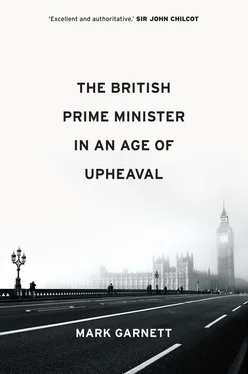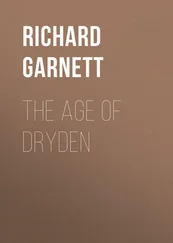Parliament, in short, was ready to submit to the ‘will of the people’ as expressed in the narrow victory for ‘Leave’ in the 2016 referendum. Although the Prime Minister had supported ‘Remain’, she had contrived to reinterpret the vote into a plebiscite on the power of the executive vis-à-vis the legislature. By calling the referendum when the outcome was at best uncertain, the executive had made a fearful blunder: but some other institution would have to pay the price. However, May botched her opportunistic election, and could only scramble together something which looked like a workable majority thanks to the dearly bought sufferance of the Democratic Unionist Party (DUP). Rather like a series of mishaps in the Grand National, this unexpected result handed the lead back to Parliament; but the divisions which had persuaded May to call an election (in contradiction of previous public pledges) resurfaced whenever Parliament looked set to consolidate its advantage, and by failing to agree on any alternative plan in a series of ‘indicative votes’ MPs effectively refused at the final fence.
Although Boris Johnson initially looked even less likely to reach the winning line, his decision in September 2019 to remove the Conservative ‘whip’ from twenty-one MPs who had voted to prevent the executive from regaining control of the Brexit proceedings gave him the necessary momentum. It looked like a throwback to the 1990s, when John Major had withdrawn the party whip from eight MPs (including Michael Carttiss, who in 1990 had told Margaret Thatcher that she could ‘wipe the floor’ with her opponents) after they had voted against an EU Finance Bill. Major had subsequently allowed the ‘whipless wonders’ back into the fold; but subsequent changes in the party rules meant that MPs who had been deprived of the whip could not stand for re-election as Conservative candidates. It turned out that the rule change was only a secondary factor in the similar circumstances of 2019; more importantly, Major had been trying to exert discipline over Eurosceptic MPs who cared for their adopted cause more than their party, while the opposite was true of the MPs who incurred Johnson’s wrath. In 2019, what might have been taken as a sign of futile vindictiveness by the executive was transformed into a tactical master stroke thanks to the passivity of Johnson’s victims; even the ones who had no intention of standing at the next election seemed to think that their punishment for voting in accordance with their personal views was richly deserved, and four of the MPs who subsequently had the whip restored went on to retain their seats in the 2019 general election as endorsed Conservatives. Their submissive attitude was all the more surprising since it coincided with a furore over another executive power-grab – Johnson’s attempt to prorogue Parliament, which was subsequently quashed by the courts. Instead of rising like lions to avenge the executive’s cynical constitutional ploy, the Commons voted on 29 October to resume their ovine role, authorizing by 438 votes to 20 a general election which the majority of MPs decidedly did not want.
It was never likely that the return of the Conservatives in December 2019, with an overall majority of eighty seats, would put an end to the battle between Parliament and the Prime Minister. However, the lesson of the conflict since 1979 is that even though individual governments might lose the occasional skirmish, through ill luck or mind-boggling incompetence, the executive will always find some way to ensure parliamentary obedience (if not confidence in the literal sense).
A breakdown of party discipline?
For those who believe that the place of Parliament is to advise rather than to obstruct the executive, the removal of the whip from twenty-one Conservative MPs – who included eight former Cabinet ministers (of whom two had served as Chancellor of the Exchequer and one had recently attracted respectable support in his bid for the party leadership) – probably seemed like a laudable return to resolute leadership after decades in which rebels had been treated too tenderly. Perhaps the best justification for this position is that MPs owe their places in Parliament to party affiliation rather than their personal attributes – a case which gained considerable credence when all of the Brexit rebels who fought the 2019 general election without official Conservative endorsement lost their seats. Yet Edmund Burke’s definition of a political party – ‘a body of men united for promoting by the joint endeavours the national interest upon some particular principle in which they are all agreed’ – was idealistic even at the time it was pronounced, and is now hopelessly outdated, not only because of its gendered language. Political parties – even relatively small ones in parliamentary terms – include people who disagree, often on fundamental issues; some elected representatives, indeed, have at times stuck with their parties even when it has become clear that they have much more in common with their supposed rivals. The job of ensuring that these ill-assorted groups end up in the same voting lobby in the House of Commons has never been easy, which is why it has been entrusted to a team of officials – usually about fourteen strong – known as ‘whips’. Especially in the early post-war period, the ability of the whips to crush the spirit of rebellion was the stuff of legend. Allegedly they ran a system of espionage which was far more effective than the Cold War secret services, gathering damaging intelligence on their party colleagues without (unlike MI6) ever divulging their findings to ‘the other side’. If the legends were true, MPs were less privileged than other people because the price of entering Parliament was to forfeit the right to cast a truly ‘free’ vote, even on matters of conscience. The price of integrity could be political and even personal ruin.
However, it is significant that the ‘golden age’ of party discipline, and the time when party whips were most feared, was the early post-war period when the main parliamentary parties broadly agreed on policy objectives and differed mostly on the means to achieve them. At such a time, most MPs could feel confident that an instruction from their whip to vote either for or against a specific measure was an appeal to tribal, rather than ideological, loyalties; in Parliament, the job of government and Opposition was to magnify small differences, and to oppose or support legislation on which their positions could easily be reversed depending on the benches they occupied.
This situation changed in 1979, when Margaret Thatcher brought a new ideological edge to British politics; and as the Conservative Party moved to the right, Labour lurched to the left. MPs on both sides whose overall loyalty to ‘the tribe’ had allowed them to overlook misgivings about their respective party’s stance on specific issues now began to wonder if they had dedicated their careers to the wrong party. The formation of the Social Democratic Party (SDP) in 1981 gave MPs with loosening tribal loyalties an opportunity to join forces under a new banner; but for understandable reasons the prospect of ‘realignment’ looked much more tempting to MPs whose party was currently out of office than to disaffected members of the Tory tribe. Had a senior Conservative joined the ‘Gang of Four’ ex-Labour ministers who launched the SDP, British political history could easily have been very different. As it was, Thatcher’s numerous Tory opponents chose to keep their powder dry for future internal battles. It was not until Thatcher’s third term (1987–90) that ‘One Nation’ Conservatives began to mount serious challenges against key elements of the government’s agenda; for example, thirty-eight MPs voted for an amendment to the poll tax legislation which would have ensured that the charge was related to the ability to pay. Reluctant to organize concerted parliamentary revolts against their party, discontented moderates focused on the possibility of removing the leader; but it was only when the battle-scarred Thatcherites, Nigel Lawson and Geoffrey Howe, lost their patience with the regime that this ‘decapitation’ strategy became feasible, and Thatcher’s sliding opinion poll ratings did the rest.
Читать дальше












